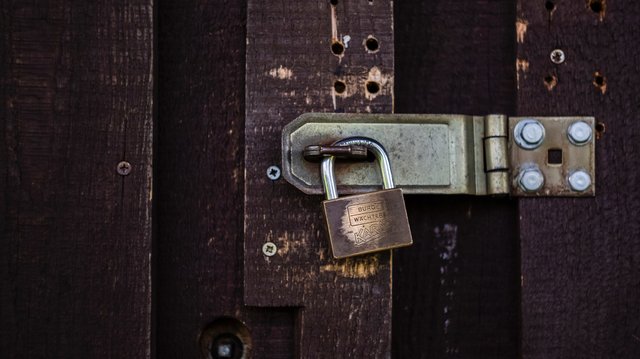How to store your crypto - part 3
Welcome to part 3 of my series 'How to store your crypto'

At this stage, you should know at least what cryptocurrency you want to store in your wallet. If you have missed out on the first two parts of the series, they are published here:
Part 1 - How to store your Crypto is available here: https://steemit.com/sct/@bitcoindelight/how-to-store-your-crypto
Part 2 - First question to ask yourself: https://steemit.com/sct/@bitcoindelight/how-to-store-your-crypto-part-2
This series is all about sharing my insights storing cryptocurrencies in a secure way and hopefully, you won't join the people who have lost crypto due to bad management.
So how I got started with crypto? Back in 2017 I logged on to my steam account and was browsing through the game library (steam is a gaming platform, just in case you don't know). Many many years ago I played a few games and for some reason, I realized that virtual items from different games were actually traded - for real money on steam. While I browsing through my inventory I realized that one of those items I owned was actually traded for >500$+. Not on steam itself but on a specific trading platform I got a recommendation for. So I put this item up for sale and sold it within 24 hours. Suddenly I had $750 on this platform and started to look at the different opportunities to cash them out keen on going on a vacation to Spain. Paypal was the only suitable cashout option but I wasn't really keen on paying ~15% off 750$ on fees to get $ changed in Euros and transferred to my Paypal account. Suddenly I spotted a Bitcoin symbol telling me that they will charge only 3% in fees for a payout to bitcoin. I thought this is reasonable compared to Paypal. Bitcoin was completely new to me at this stage, so I started to look at topics on how to get a bitcoin address. The wallet I used for my first Bitcoin transaction ever was: Electrum.
What is Electrum? Electrum is pretty much a software wallet for bitcoin only. It is a light wallet. This means the wallet works without having a full copy of the blockchain on your hard drive which can take a lot of space on your hard drive. You can pretty much start straight away using the functionalities of the wallet without waiting that the download of the blockchain data has finished. Before I start talking about Electrum I want to point out the obvious: Getting bitcoins worth $750, I consider my initial 'deposit' in the cryptospace as fairly small. But the whole process of getting a bitcoin address and requesting the withdrawal was so smooth and fast that I couldn't even think about the fact that I had pretty much no idea what to do with bitcoins afterward. Even without knowing what I was doing with those virtual coins called Bitcoin I was triggered by paying fewer fees compared to Paypal and the smooth process. I was fascinated of bitcoins although I had a minimal understanding of what I was dealing with. I had no idea that I could easily cash them out through an Exchange in fiat or start buying stuff.
Question #2 to ask yourself: What do I want to do with my cryptocurrency? Why do I want to store crypto in my own wallet? Will I use my crypto to purchase items? Will I use my crypto to pay at my favorite restaurant which has started to accept crypto a few weeks ago? Will I need to access my crypto frequently? Many similar questions will lead to the same profound question: How do I want to use the cryptocurrency I plan to save on my wallet? If you DO NOT want to spend your crypto regularly there is no need to think about a wallet installed on your smartphone only. I would recommend looking at a software wallet first which is being installed on your pc. Why? A software wallet installed on your PC will give you the best options for doing regular backups which I will cover later in this series as well. Most people are not backing up their phones which can cause major issues with apps of small developer groups. You don't want to risk having delayed access to your crypto or even losing your crypto because the devs of your crypto wallet on your smartphone couldn't deal with changes in the latest iOS or Android firmware. As a beginner stay away from mobile wallets. Some people may already ask what about hardware wallets. I will cover this question very soon.
Conclusion: Think about WHAT you want to do with your cryptocurrency next? This will determine what kind of wallet you might want to consider at the beginning. By now you should have an idea about the importance of private keys and be aware of the main advantage of using a light wallet over wallets which require to synchronize with the full blockchain of your cryptocurrency.